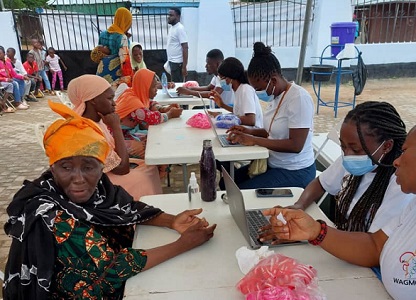
Researchers discuss community engagement in Accra
A close-out meeting on a project on how to involve communities in the ethical conduct of biomedical research has been held at the Noguchi Memorial Institute for Medical Research (NMIMR) in Accra.
The project, dubbed Human Heredity and Health in Africa (H3Africa), involved biomedical research, which normally used blood samples or body tissues, was the broad area of science that looked for ways to prevent and treat diseases that cause illness and death in people and animals.
A Senior Lecturer at the University of Ghana School of Public Health, Dr Paulina Tindana, who gave some key findings from the project, said it was appropriate to communicate to community members what the scientists did with their blood samples and tissues when they were done with their research.
She said community engagement had been recognised as an important aspect of the ethical conduct of biomedical research, especially when the research was focused on ethnically or culturally distinct populations.
Two-day meeting
The two-day meeting, which was aimed at reviewing the impact of the project after its implementation over the last four years and was dubbed, “Community engagement for genomics and biobanking in Africa (CEBioGen)”.
Advertisement
Genomics is an interdisciplinary field of biology focusing on the structure, function, evolution, mapping and editing of genomes.
A genome is an organism's complete set of DNA.
Biobanking on the other hand is the process by which samples of bodily fluid or tissue are collected, annotated, stored and redistributed for research to improve understanding of health and diseases.
Participants at the meeting were drawn from project sites in Ghana, Nigeria, Kenya and South Africa.
According to Dr Tindana, Genomic research raised important ethical questions such as the appropriate consent models for the use of archived samples, data sharing, privacy and confidentiality, how communities should be engaged in the research process and how to communicate genetic results to research participants.
Crucial role
The Director for Noguchi Memorial Institute for Medical Research, Professor Dorothy Yeboah-Manu, in a welcome address said the meeting was important for the current dispensation as it primarily engaged the community on how genetics worked and how it played a crucial role in answering its questions that previously could not be answered
The Provost of the College of Health Sciences, Professor Julius Fobil, applauded the project as he explained that it was a successful project, which reflected on society as he noted that science was a difficult language to explain, especially in our ethnic jurisdictions.
Writer’s email:rebecca.quaicoe-duho@graphic.com.gh
